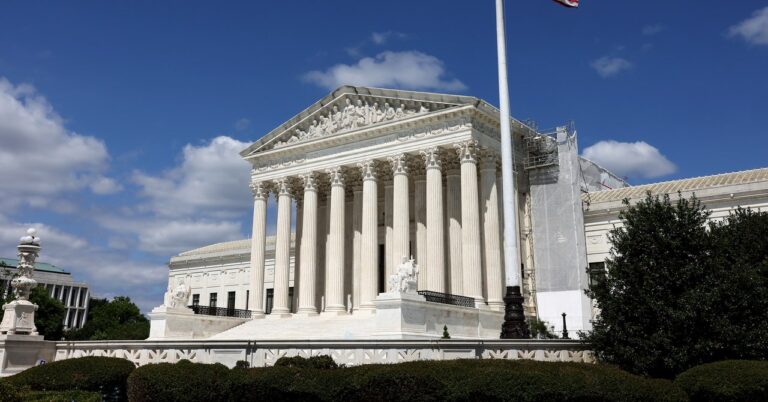SpaceX has adopted similar tactics in its battles with federal regulators. After the National Labor Relations Board in January accused the company of illegally firing eight workers for criticizing Elon Musk in an internal letter, SpaceX filed a complaint alleging that the agency’s structure is unconstitutional.
The reversal of Chevron That means, among other things, that “we’re clearly going to have more litigation,” says Berin Szoka, director of the nonpartisan think tank TechFreedom in Washington, D.C. For example, the FTC’s April decision prohibit non-compete clauses is probably in danger. Although the agency did not rely on Chevron In its enforcement actions in recent years, the doctrine has granted it a degree of deference before the courts in rulemaking. “There’s a zero percent chance that argument will prevail now,” Szoka says.
Another decision that could be more easily challenged is the Federal Communications Commission’s decision, also in April, reinstating Obama-era net neutrality rules that were repealed under the Trump administration. Net neutrality, its proponents say, is an important consumer protection principle that ensures that service providers can’t give certain types of traffic (say, their own streaming services) more favorable treatment than others. 500 page document on the decision explicitly names Chevron as a law that gives him the power to reestablish the rules.
Szoka stresses that even if the decision to cancel Chevron While this may create “confusion” in the lower courts, it does not mean that the courts must defer to the regulators. The courts will now decide how much weight to give to the regulators’ decisions – it could be a little or a lot – and it is possible that some of these cases will end up in the Supreme Court, which would further clarify the new rules.
In the event of a second Trump administration, the recent changes could even end up benefiting progressives, Szoka says. If the Trump administration is filling agencies with leaders who are loyal to the president and who are implementing his agenda, Szoka says, “I think you have to ask yourself, do you really want the courts to defer to these agencies?”
In the meantime, Sawyer-Phillips said, other countries have already stepped up their efforts “Tying the hands of administrative agencies could have the effect of handing over to the European Commission regulatory authority over rapidly evolving technology industries on issues such as privacy, data portability and access and interoperability of digital platforms,” she explains.
Indeed, Sawyer-Phillips adds, the United States lags behind the rest of the world when it comes to important issues like antitrust law: “The United States invented competition policy – what we call antitrust law – but not only are we failing to adapt to modern times, we are falling into political withdrawal.”
With the death of ChevronCongress could step in and try to legislate a comparable level of deference to regulators. However, that strategy has no guarantee of success. “It’s hard for Congress to overturn Supreme Court precedent,” Vladeck says. “Congress could pass a law tomorrow reimposing the Chevron rule, and the court would ignore it.
Vladeck said recent Supreme Court decisions weaken the power of the federal government and give more latitude to the courts. A fundamental change has taken place. “It’s an imperial court now,” he said.


